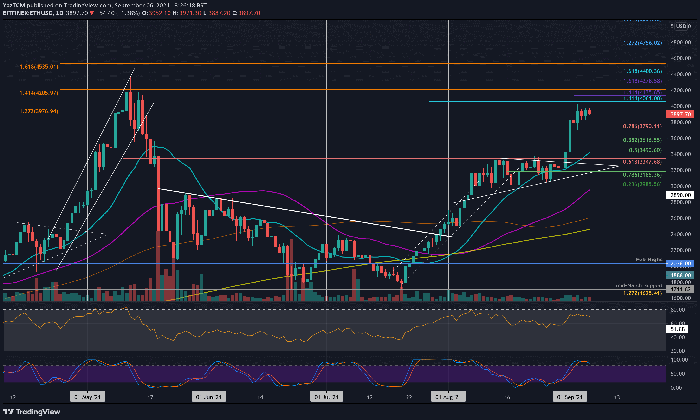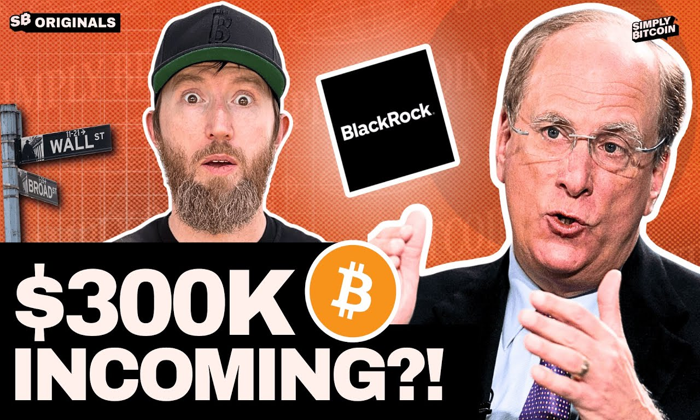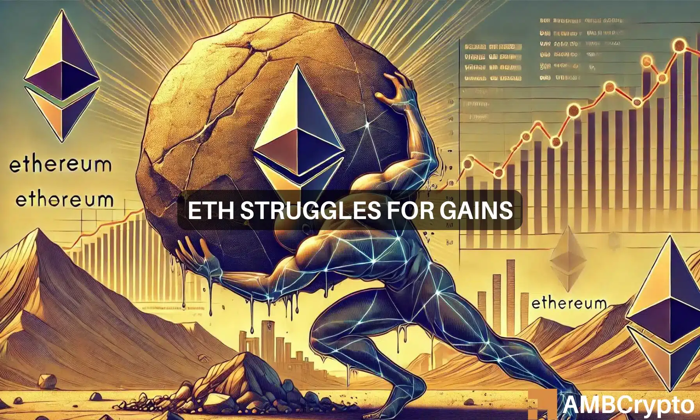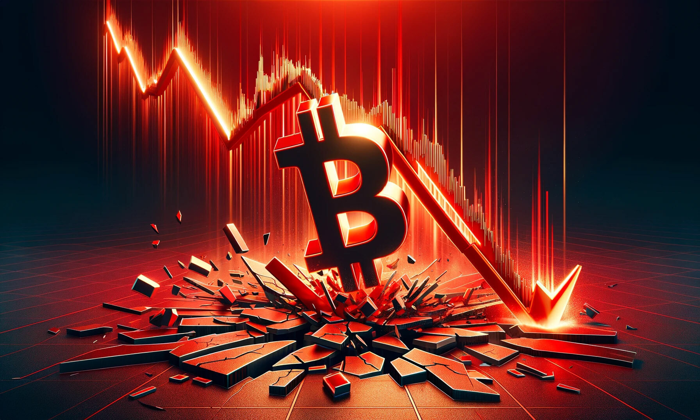In a significant twist for the cryptocurrency community, the LIBRA Token lawsuit has led to a federal court’s decision to freeze approximately $57.65 million in USDC connected to Kelsier Ventures. This legal action, considered a landmark case, raises serious questions about the integrity of meme coin promotions and the accountability of their developers. Initiated by Burwick Law on behalf of allegedly misled investors, the lawsuit underscores the risks associated with speculative assets in the digital currency market. As the court examines the conduct of Kelsier Ventures and its co-founders, the outcome may have far-reaching implications for both investors and the rapidly evolving landscape of cryptocurrency regulations. With cryptocurrency lawsuits increasingly becoming prevalent, the developments surrounding the LIBRA Token will be closely monitored by stakeholders and regulators alike.
The unfolding situation surrounding the LIBRA Token has sparked intense scrutiny in the crypto sphere, particularly due to the recent actions taken in a legal dispute involving Kelsier Ventures. This lawsuit serves as a cautionary tale for investors navigating the volatile world of digital assets, emphasizing the potential pitfalls of engaging with meme coins. With claims of fraud and deceptive practices, the case highlights the need for heightened vigilance among those investing in cryptocurrencies. As industry stakeholders grapple with the implications of this lawsuit, the freezing of assets linked to Kelsier Ventures exemplifies the challenges and complexities surrounding accountability in cryptocurrency operations. The LIBRA Token incident may ultimately prompt a reevaluation of how meme coins are regulated and perceived within the wider financial ecosystem.
Overview of the LIBRA Token Lawsuit
The LIBRA Token lawsuit has become a focal point in the discussion surrounding cryptocurrency regulations and investor protections. Initiated by Burwick Law, the case has attracted significant attention due to allegations of fraud against the promoters of the LIBRA meme coin. The legal team claims that the creators misled investors, leading to substantial financial losses when the token’s value plummeted by over 90% shortly after its highlight in February. As this lawsuit unfolds, it highlights the vital need for clarity in the cryptocurrency market, especially regarding the responsibilities of token creators.
With Kelsier Ventures at the center of the storm, the implications for investors and the broader crypto community are profound. Investors who trusted the LIBRA Token, spurred by its rapid rise and endorsements, now find themselves entangled in a legal battle seeking restitution for their losses. This lawsuit underscores the precarious nature of investing in meme coins, which can be susceptible to hype and manipulation, ultimately leaving unsuspecting investors vulnerable.
Legal Ramifications of the USDC Freeze
The recent court-ordered freeze of approximately $57.65 million in USDC linked to Kelsier Ventures serves as a critical development in the LIBRA Token lawsuit. This Temporary Restraining Order (TRO) raises essential questions regarding the security of digital assets and the enforcement of asset freezes within cryptocurrency markets. As the lawsuit progresses, how the court handles this freeze may set a precedent for future cases involving cryptocurrency fraud, influencing how similar situations are managed legally.
This response from the federal court emphasizes the rising respect for digital currency regulations amidst increasing calls for greater oversight. The decision to freeze these funds directly impacts Kelsier Ventures and could shape the future of crypto asset management. The hearing scheduled for June 9 will be pivotal, determining whether the freeze is upheld, thus affecting investors’ confidence in both the legal system and cryptocurrency markets as a whole.
Impacts of LIBRA Token’s Market Behavior
LIBRA Token’s tumultuous market journey exemplifies the volatility common in the cryptocurrency sphere. After temporarily reaching a massive market cap of $4 billion, the subsequent crash serves as a significant warning to investors about the speculative nature of meme coins. Such drastic fluctuations can create a sense of urgency and fear among investors, particularly when hype surrounding a token leads to misguided confidence in its stability.
The ill-fated spike followed by a swift downturn highlighted the vulnerabilities associated with meme coin investments. As many investors rushed to capitalize on the token’s meteoric rise, the fallout revealed the underlying risks tied to unregulated and rapidly fluctuating tokens. The ramifications extend beyond individual losses, potentially affecting regulatory responses across the global cryptocurrency landscape as authorities seek to enforce stricter standards.
Investor Protection and Cryptocurrency Regulation
The LIBRA Token lawsuit highlights an urgent need for heightened investor protection and clearer regulatory frameworks in the cryptocurrency space. As more people become involved in digital asset investment, the potential for fraud and misleading practices increases significantly, revealing a gap in current legislation. Investors deserve protections that help them navigate the complexities of blockchain technology and the promises made by token developers.
As discussions around regulatory measures intensify, the outcomes of high-profile cases like the LIBRA Token lawsuit could shape future policies. Authorities may consider implementing stricter guidelines on disclosures and advertising practices, ensuring that investor rights are prioritised in the fast-evolving cryptocurrency environment. These preventative measures could bolster trust and stability in a market often riddled with deception.
The Role of Kelsier Ventures in the LIBRA Controversy
Kelsier Ventures has emerged as a central figure in the LIBRA Token controversy, being described as the entity behind its launch and subsequent marketing efforts. The firm’s co-founders face serious allegations of orchestrating a deceptive scheme that misled investors regarding the coin’s potential. These accusations call into question the ethical responsibilities of those involved in developing and promoting new cryptocurrencies, highlighting the necessity for accountability.
As Kelsier Ventures navigates the ongoing lawsuit, the outcomes could significantly affect their business operations and reputation. The firm’s approach to compliance and transparency will be scrutinized closely, shedding light on the practices deemed acceptable in the cryptocurrency market. This legal battle may ultimately redefine the responsibilities of ventures launching new tokens, especially regarding investor communication and risk disclosure.
Understanding the Mechanics Behind Asset Freezes
Asset freezes in the cryptocurrency realm are complex, particularly given how quickly digital assets can be transferred and concealed. The Southern District of New York’s decision to freeze USDC linked to Kelsier Ventures illustrates the judiciary’s intent to hold potentially fraudulent actors accountable while safeguarding investor funds. Such actions can serve as a deterrent to would-be offenders who might consider exploiting the unregulated nature of cryptocurrency.
The case also underscores the necessity for improved transparency and tracking within blockchain systems, enabling courts to act decisively in instances of fraud. As technology evolves, legal frameworks must adapt to ensure effective governance over digital currencies, providing safeguards against the rapid and often chaotic nature of crypto asset trading.
Lessons from the LIBRA Token Incident
The LIBRA Token incident serves as a cautionary tale for investors delving into the realm of meme coins and cryptocurrency. The harsh reality of the 90% value drop demonstrates how quickly fortunes can change based on market sentiment and actions taken by a select few individuals. Potential investors must now be more diligent in conducting extensive research, verifying claims made by promoters, and understanding the risks inherent in such speculative investments.
Moreover, the fallout from LIBRA emphasizes the need for a shift in how cryptocurrencies are perceived and managed. Educational initiatives aimed at investors could foster a better understanding of these assets, empowering individuals to make informed decisions. With cases like LIBRA Token, it is crucial to learn from the past to pave a safer path forward for future investors in the digital currency landscape.
The Future of Cryptocurrency Under Scrutiny
The ongoing LIBRA Token lawsuit and subsequent freeze of associated funds signify a larger spotlight on the cryptocurrency landscape. As regulatory authorities scrutinize the actions of Kelsier Ventures and other involved parties, the case may prompt a broader shift in the industry. The outcome could determine whether additional regulations will be enacted, altering the way cryptocurrencies operate moving forward.
The increasing frequency of legal action and the demand for accountability illustrate the evolving nature of cryptocurrency in the financial ecosystem. As the industry matures, a coordinated approach that balances innovation with accountability will be essential to solidify public trust and ensure investor protection. The outcome of the LIBRA situation could very well set the tone for how emerging cryptocurrencies will be managed in the future.
Investigating Meme Coin Fraud Claims
The LIBRA Token lawsuit raises the critical issue of meme coin fraud, an increasingly relevant topic in the cryptocurrency dialogue. With allegations suggesting deceptive practices by the promoters, there is a pressing need for deeper investigations into similar cases that have surfaced over the past years. The specifics of this case illustrate a pattern of behavior that, if proven, could initiate a wave of legal consequences for those engaging in unscrupulous activities within the crypto space.
Not only does this lawsuit shine a light on the alleged wrongdoing behind LIBRA, but it also emphasizes the broader implications for the meme coin market as a whole. Investors need to be wary of tokens promising unrealistic returns and understand the risks tied to speculative investments. The fallout from these types of scams threatens to overshadow legitimate projects, making it even more crucial for the community to demand accountability and transparency from all players in the cryptocurrency industry.
Frequently Asked Questions
What is the LIBRA Token lawsuit about?
The LIBRA Token lawsuit involves a class-action case initiated by investors claiming they were misled by the promoters, particularly Kelsier Ventures. They allege fraudulent activities surrounding LIBRA’s launch, resulting in significant financial losses.
Why was $57.65 million in USDC frozen in relation to the LIBRA Token lawsuit?
The federal court ordered the freezing of $57.65 million in USDC linked to LIBRA Token as part of a Temporary Restraining Order (TRO). This action aims to protect investor assets while the lawsuit alleging fraud against Kelsier Ventures and its team is ongoing.
Who is Kelsier Ventures in the context of the LIBRA Token lawsuit?
Kelsier Ventures is the firm behind the LIBRA Token’s launch. The lawsuit names its co-founders, claiming they engaged in deceptive practices that misled investors and allowed for significant financial exploitation through coordinated token dumps.
What impact did the LIBRA Token have on the cryptocurrency market?
The LIBRA Token briefly reached a market cap of $4 billion after receiving an endorsement from Argentine President Javier Milei. However, it plummeted over 90% shortly afterward, causing significant market turmoil and leading to legal scrutiny.
What are the implications of the court’s ruling in the LIBRA Token lawsuit?
The implications of the court’s ruling include potential precedents for asset protection in cryptocurrency-related lawsuits and increased regulatory scrutiny on meme coin and token launches. This may affect how future cryptocurrencies are marketed and managed.
When is the next hearing for the LIBRA Token lawsuit scheduled?
The next hearing for the LIBRA Token lawsuit is scheduled for June 9, where the court will decide the fate of the frozen USDC funds and potentially outline the future direction of the case.
What legal actions have been taken against the LIBRA Token promoters?
Legal actions in the LIBRA Token lawsuit include the class-action lawsuit filed by Burwick Law, alleging that the promoters misled investors and engaged in fraudulent schemes while launching the token.
How does the LIBRA Token lawsuit relate to the broader cryptocurrency landscape?
The LIBRA Token lawsuit highlights ongoing issues of fraud and deception in the cryptocurrency market, particularly in hype-driven projects. It signifies a potential shift towards stricter oversight of token launches and better investor protection.
| Key Points | Details |
|---|---|
| Court Freezes USDC | Approximately $57.65 million in USDC linked to LIBRA was ordered to be frozen. |
| Key Lawsuit | A class-action lawsuit is targeting alleged fraud involving the LIBRA token. |
| Involved Parties | Kelsier Ventures and its co-founders, along with others, are named in the lawsuit. |
| Major Allegations | Investors allege misleading promotions and a scheme to extract over $100 million. |
| Market Activity | LIBRA saw a market cap surge to $4 billion but crashed over 90% shortly after. |
| Court Proceedings | A hearing on June 9 will decide if the asset freeze remains. |
| Potential Implications | This ruling could impact future cryptocurrency asset protections and regulatory actions. |
Summary
The LIBRA Token lawsuit has significant implications, as a US federal court has intervened to block $57.65 million in USDC related to the controversial token. The ongoing class-action lawsuit alleges that investors were deceived by the promotions surrounding LIBRA, leading to substantial financial losses. This legal action exemplifies the need for increased scrutiny and regulation in the cryptocurrency space, particularly for tokens launched with hype and little backing. The upcoming hearing on June 9 could further shape the landscape of cryptocurrency litigation and asset management.
The LIBRA Token lawsuit has taken a dramatic turn, with a US federal court ordering the freeze of $57.65 million in USDC tied to Kelsier Ventures, the firm behind the controversial cryptocurrency. This unexpected legal development emerges amidst allegations of fraud in a class-action lawsuit directed at the token’s creators, who stand accused of misleading investors during LIBRA’s tumultuous rise and fall. Initiated by Burwick Law on behalf of deceived investors, the lawsuit highlights concerns surrounding meme coin fraud, particularly within the volatile landscape of cryptocurrency. The court’s Temporary Restraining Order (TRO), issued on May 28, aims to secure assets believed to have been unjustly obtained, marking a crucial moment for asset protection in digital finance. As the hearing date approaches, the implications of this case could resonate through the cryptocurrency market, influencing future regulatory measures and investor confidence.
The legal controversy surrounding the LIBRA Token has sparked significant debate in the cryptocurrency community, particularly following the court’s action to freeze assets linked to the project. Often referred to as the LIBRA meme coin, this token’s association with Kelsier Ventures has drawn scrutiny due to allegations of misleading operations that target unsuspecting investors. As the cryptocurrency lawsuit unfolds, it presents a case study on potential fraud in digital currencies, further complicating the landscape for projects that may sidestep regulatory scrutiny. Amidst this, the freezing of USDC associated with LIBRA raises questions about the safety of investments in the rapidly evolving crypto markets. This situation not only affects those involved but could set important precedents for future cases dealing with financial malfeasance in decentralized finance.














